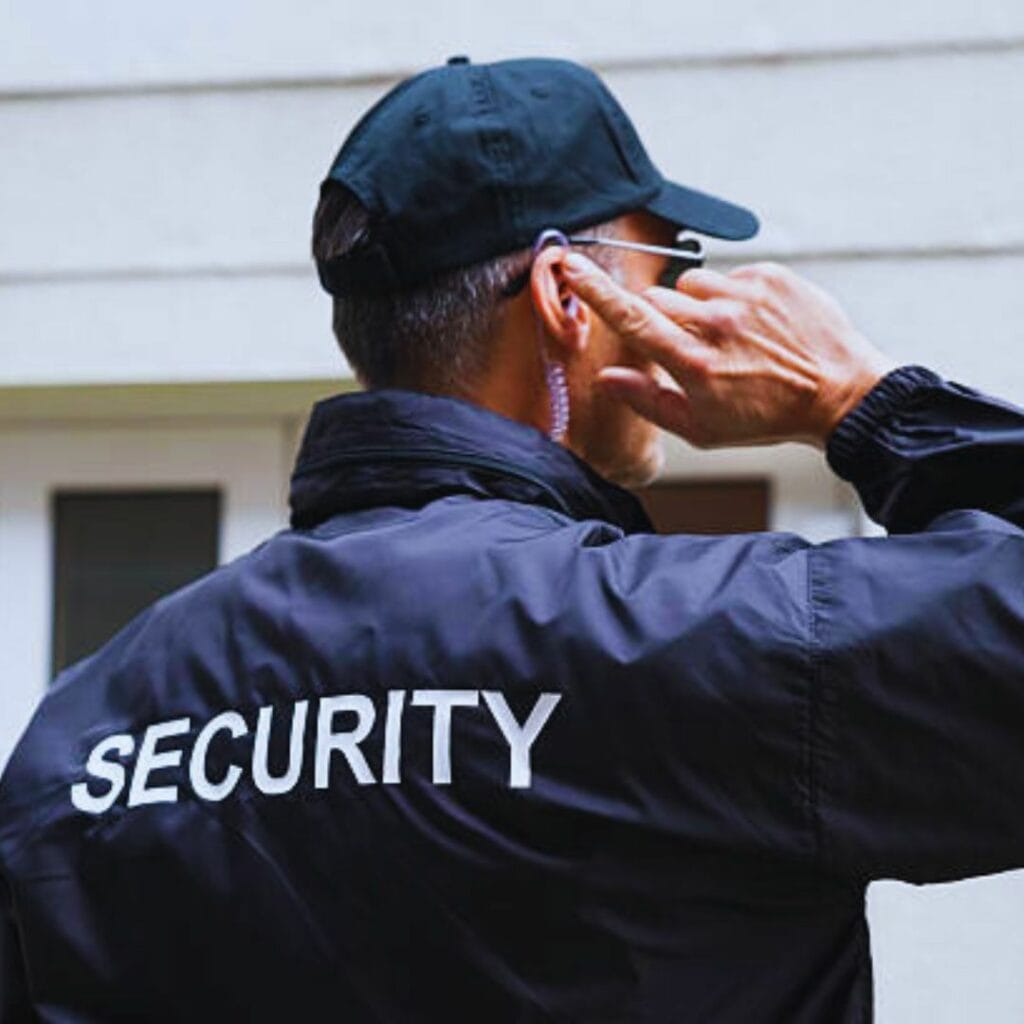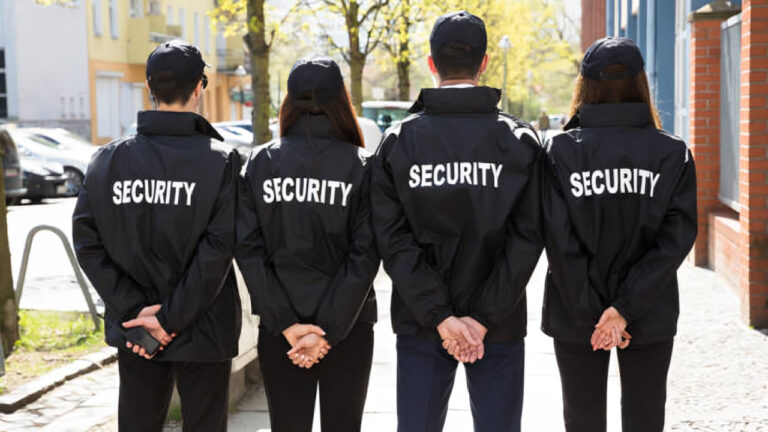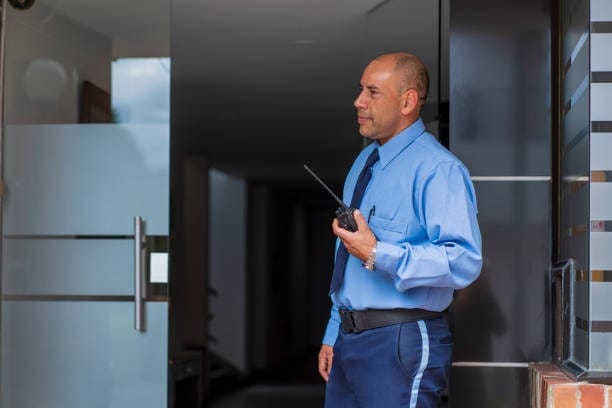Business organizations today face threats such as internal theft, vandalism, cyberattacks, and physical break-ins. As threats evolve across industries, hiring a protective security officer has become a critical strategy. In this blog, we explore why every organization should have a protective security officer and how it helps in creating a safe environment for its employees, customers, and assets.
Understanding the Role of a Protective Security Officer
A protective security officer (PSO) is trained in ensuring the security and safety of the premises in question. Their job does not consist solely of primarily patrolling and guarding the property. It may include active monitoring of various surveillance equipment, controlling of people who access the premises, taking action in response to emergencies, and providing crime deterrence. In fact, one of their primary goals is to mitigate the risks involved, deter instead of suffering from crime, and project an image of order and safety.

1. Preventing Crime and Ensuring Safety
The first and foremost reason for engaging a protective security officer is crime prevention. Detecting suspicious activity and acting on it to deter potential threats before they escalate is why security officers were created. The very presence of a PSO would deter criminal activity such as theft, vandalism, and violence. In a retail store, corporate office, or manufacturing facility, a security officer is able to uncover vulnerabilities and takes proactive steps to mitigate risk.
In cases involving serious assets, such as the banking and jewelry industry, some of the functions of the security officer may entail the protection of valuable properties. On the other hand, in other instances, they are the first line of defense in preventing workplace violence, which unfortunately is growing more common.
2. Handling Emergencies and Crisis Situations
Every organization is vulnerable to emergencies, and once they occur, a diligent officer could distinguish between coping and incurring devastating consequences. From fire to medical emergencies to natural disasters and active shooter situations, trained protective security officers can manage these situations skillfully.
They are trained in emergency procedures and usually know first aid and CPR. In the case of an active shooter or violent attack, protective service officers are trained to manage the crisis until the arrival of law enforcement. The businesses would likewise strategically therefore be assured that their employees would not be left alone to cope with dangerous situations.
3. Enhancing Employee and Customer Confidence
A safe, successful environment for employees and customers is a big part of running a good business. Employees are more productive if they feel safe while working. The likelihood of customers visiting and staying at a place of business increases when they feel safe in that environment. The security officer’s presence creates an atmosphere where the safety and well-being of people matters, which builds employee morale.
A security officer can promote cordial relations between businesses and its customers by providing timely, polite assistance, whether showing a customer where to go or a response to their safety concern. The protective service officer assists in providing exemplary service to customers.
4. Safeguarding Physical and Digital Assets
The protective security officer cares for more than just the lives of people; he or she is also a crucial element in protecting property. For a business that has expensive equipment, large inventories, or sensitive data stored, the utility of a protective security officer could greatly enhance the practices of theft and damage control. Officers will patrol the premises to inspect bags and packages and ensure that only authorized personnel are allowed into the unauthorized areas.
Thus, with the increasing prevalence of cyber threats, many security officers have also been trained as cyber security personnel. This will help ensure that access to digital systems is restricted and that physical security is supplemented with cyber security features.
5. The Monitoring and Surveillance
One of the most central jobs of a protective security officer would be that of watching surveillance systems. Whether through closed-circuit television (CCTV), alarm systems, or access control technologies, PSOs will ensure that all security equipment is up-to-par and any strange activity is immediately followed up. Active monitoring gives the officer a chance to intervene during a potential threat.
Most modern organizations do have high-tech surveillance instruments that are critical in preventing break-ins and other forms of criminal activities. A PSO ensures the successful management of such systems in active working order for the detection of any possible security breach.
6. Access Control and Loss Prevention
Access control is of great importance to the security of a given business, especially in areas where assets or sensitive information is plentiful. PSOs control access for employees and visitors to guarantee only authorized persons enter restricted areas. They are manning entrances, confirming employee ID badges, and conducting visitors to designated locations. In doing so, they obstruct unauthorized access thus reducing chances of theft or corporate espionage.
In retail environments, a security officer is essential for loss prevention, which includes observing sales floors for suspicious activity and preventing shoplifting. This is combined with the work with store management to identify and remedy a potential security breach.
7. Deterring Workplace Violence
There is growing concern in the business world about workplace violence. If it is bullying, harassment, or physical altercation, workplace violence can have devastating effects on employee well-being and the work environment as a whole. Protective security officers are trained to recognize the warning signs and should try to de-escalate potentially violent situations before they get out of hand.
At times, a security officer may need to step in physically to escort someone causing disruption off the premises. This provides a level of comfort for anyone feeling threatened, particularly on stressful occasions.
8. Ensuring Compliance with Regulations
Numerous businesses serve many regulations, especially those in regulated industries such as healthcare, finance, and construction. The protective security officer assists the companies in complying with regulations by ensuring all security procedures and safety protocols are adhered to. This may include, among other things, the enforcement of fire safety measures, controlling access to sensitive data, and maintaining proper security documentation.
A PSO may also assist a business organization in local, state, and federal regulatory compliance by staying informed on laws regarding security, privacy, and workplace safety.
9. Cost-Effectiveness in the Long Run
While hiring a protective security officer may appear a huge initial investment, such a setup might help save money for the long haul. A security officer helps reduce the financial impact of security breaches by preventing theft, vandalism, or other forms of loss. Furthermore, oftentimes with good security, you can boast lower insurance premiums since the insurer regards you as lower risk.
A protective security officer also limits the legal and reputational costs associated with security incidents. Protecting your employees, customers, and assets from harm avoids costly lawsuits and tarnishing of your brand.
10. Providing Peace of Mind
Of all the advantages of having a protective officer, one stands out- that of peace of mind. Having a qualified person working on your behalf to safeguard your interests gives you the ability to grow and improve with the least likelihood of disturbances by pondering security issues from day to day. Security provided by trained personnel ensures a sense of safety for everyone and contributes to the efficiency of everyday operations.
Conclusion
In today’s unstable global economy, security has become a critical focus for growing businesses. A skilled security officer plays a key role in deterring crime, preventing emergencies, and responding effectively when needed, ultimately safeguarding the organization’s assets. As such, investing in professional security services, such as Alfa Security, provides security for your employees and customers and, more importantly, assures you in times of crisis. Alfa Security is committed to providing top-tier protection, ensuring the safety of your workforce and premises. Having the proper resources for security, oriented toward protecting employee and customer life and property, allows businesses to secure their operations and maintain business continuity.



